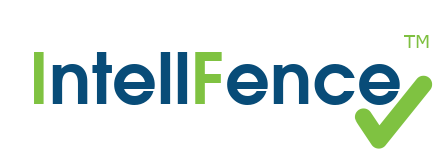About the CCSP Course
Certified Cloud Security Professional (CCSP) is one of the industry’s premier cloud security certifications offered for individuals and enterprise teams to manage cloud assets securely. This 4-day Certified Cloud Security Professional (CCSP) certification is governed by the not-for-profit International Information Systems Security Certification Consortium (ISC)2. Check out the dates below and enroll today for the CCSP certification course.
Key Features of this CISSP Training:
- Instructor-led Certified Cloud Security Professional (CCSP) Certification Training
- Get access to a free course preview to begin your preparation
- Expert CCSP instructors across the globe
- Accredited CCSP course material prepared by SMEs
- Get key resources from ISC2
- CCSP Sample papers provided
- Industry-recognized Course Completion certificate provided
- Take advantage of 1-to-1 Training and Fly me a Trainer option
- Training provided across 100+ locations globally
You Will Learn How To:
- Strategically focus your preparation for CCSP Certification
- Plan a secure environment aligned with organizational objectives, compliance requirements, and industry-standard architectures
- Develop operational security and continuity through preventive and recovery mechanisms
Course Description
Domain 1: Architectural Concepts & Design Requirements
Cloud computing concepts & definitions based on the ISO/IEC 17788 standard; security concepts and principles relevant to secure cloud computing.
- Understand Cloud Computing Concepts
- Describe Cloud Reference Architecture
- Understand Security Concepts Relevant to Cloud Computing
- Understand Design Principles of Secure Cloud Computing
- Identify Trusted Cloud Service
Domain 2: Cloud Data Security
- Concepts, principles, structures, and standards used to design, implement,monitor, and secure, operating systems, equipment, networks, applications, and those controls used to enforce various levels of confidentiality, integrity, and availability in cloud environments.
- Understand Cloud Data Lifecycle
- Design and Implement Cloud Data Storage Architectures
- Design and Apply Data Security Strategies
- Understand and Implement Data Discovery and Classification Technologies
- Design and Implement Relevant Jurisdictional Data Protections for Personally Identifiable Information (PII)
- Design and Implement Data Rights Management
- Plan and Implement Data Retention, Deletion, and Archiving Policies
- Design and Implement Auditability, Traceability and Accountability of Data Eve
Domain 3: Cloud Platform & Infrastructure Security
Knowledge of the cloud infrastructure components,both the physical and virtual, existing threats, and mitigating and developing plans to deal with those threats.
- Comprehend Cloud Infrastructure Components
- Analyze Risks Associated to Cloud Infrastructure
- Design and Plan Security Controls
- Plan Disaster Recovery and Business Continuity Managemen
Domain 4: Cloud Application Security
Processes involved with cloud software assurance and validation; and these of verified secure software.
- Recognize the need for Training and Awareness in Application Security
- Understand Cloud Software Assurance and Validation
- Use Verified Secure Software
- Comprehend the Software Development Life–Cycle (SDLC) Process
- Apply the Secure Software Development Life–Cycle
- Comprehend the Specifics of Cloud Application Architecture
- Design Appropriate Identity and Access Management (IAM) Solutio
Domain 5: Operations
Identifying critical information and the execution of selected measures that eliminate or reduce adversary exploitation of it; requirements of cloud architecture to running and managing that infrastructure; definition of controls over hardware, media, and the operators with access privileges as well as the auditing and monitoring are the mechanisms, tools and facilities.
- Support the Planning Process for the Data Center Design
- Implement and Build Physical Infrastructure for Cloud Environment
- Run Physical Infrastructure for Cloud Environment
- Manage Physical Infrastructure for Cloud Environment
- Build Logical Infrastructure for Cloud Environment
- Run Logical Infrastructure for Cloud Environment
- Manage Logical Infrastructure for Cloud Environment
- Ensure Compliance with Regulations and Controls (e.g., ITIL, ISO/IEC 20000–1)
- Conduct Risk Assessment to Logical and Physical Infrastructure
- Understand the Collection, Acquisition and Preservation of Digital Evidence
- Manage Communication with Relevant Parties
Domain 6: Legal & Compliance
Addresses ethical behavior and compliance with regulatory frameworks. Includes investigative measures and techniques, gathering evidence (e.g., Legal Controls, eDiscovery, and Forensics); privacy issues and audit process and methodologies; implications of cloud environments in relation to enterprise risk management.
- Understand Legal Requirements and Unique Risks within the Cloud Environment
- Understand Privacy Issues, Including Jurisdictional Variation
- Understand Audit Process, Methodologies, and Required Adaption’s for a Cloud Environment
- Understand Implications of Cloud to Enterprise Risk Management
- Understand Outsourcing and Cloud Contract Design
- Execute Vendor Management
The Online Classroom includes:
- Access to recordings and course content for 360 days.
- Interactive flash cards to reinforce learning
- Independent reading and learning activities
- Case studies and real-world scenarios
- Knowledge checks after each domain
- Post-course assessment questions to gauge exam readiness
Target Audience
This training course is intended for professionals who have at least 2 years of recent full-time professional work experience in 2 or more of the 8 domains of the CISSP CBK and are pursuing CISSP training and certification to acquire the credibility and mobility to advance within their current information security careers. The training is ideal for those working in positions such as, but not limited to:
|
|
